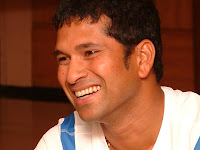Times View - Grandiose flight of fancy
Counter View - Space is the future
-The Times of India, January 31, 2012
Counter View - Space is the future
-The Times of India, January 31, 2012
This blog aims to provide a single point access to all the Opinion-Editorial articles of major Newspapers of India
"there's a thorny path to tread first and even though it's not as rough as some other procedures, it might help to know what's in store for you"

"Taiwan is a friendly country that can not only help India fulfil some of its domestic economic objectives, but also strategic goals vis-a-vis China."
"It is time to move towards a more robust partnership."
"As more Indians show intolerance to anyone who threatens violence, we will have more festivals where liberal and illiberal will use only their words to make points or refute them."

"After all, financial services are not just about money or about giving loans to the poor. They are really about building assets to secure lives and livelihoods."
"Boosting industrialisation and infrastructure with smart, reforms-based policy support will promote investment. This in turn will facilitate ambitious projects with positive multiplier effects on the economy. That's the virtuous circle the government must establish."